Why organisations need to take the lead on mental health
December 21 2023
Read more
The UK is experiencing a mental health crisis. Both the pandemic and rising cost of living have shaken us all - and continue to do so at an alarming rate.
At Health Assured, we've seen a 26% increase in calls to our mental health helpline from 2019-2022.
We’re always looking to gain more insight into the issues organisations are tackling. So, after seeing this increase in calls we thought it necessary to conduct more in-depth research.
We surveyed 5400 organisations across the UK to identify which areas they were finding most challenging right now.
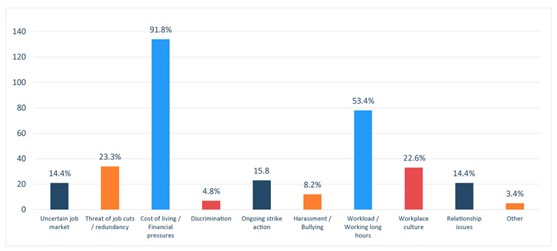
It's no surprise that the cost of living is weighing heavily on individuals across the UK. 91.8% of people are concerned about rising prices, listing it as the biggest threat to employee mental health in 2023. This is followed by workload (53.4%) and redundancy (23.3%).
We've also seen a 40% increase in financial-related calls to our helpline over the last year. And, with energy costs expected to rise again in April, we expect that many more people will begin to struggle, both financially and mentally. This is an area we will continue to watch closely.
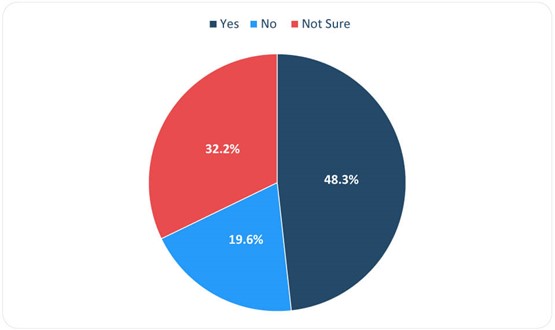
Working from home kept global business running during the Covid-19 pandemic and, since then, many UK companies have started to use flexible working. It became an exciting opportunity for companies to better support their employees work-life balance.
However, our survey results show that working from home may be having the opposite effect. Our results showed that: double the number of people thought that working from home had a negative impact on mental health rather than a positive one.
Despite the advantages, working from home can cause problems for employees. Some of the most common downfalls of working from home include isolation and loneliness.
Remote staff often find it hard to stay connected with other people. As a result, these working conditions can often lead to anxiety, disengagement, and poor emotional wellbeing.
Our initial survey highlighted areas of concern, especially around the impact of working from home. We wanted to understand these results further and find out who was being most affected, so conducted further research. The following question was sent, along with questions into age, industry and location.
We then divided the results into three distinct categories. Firstly by location (North and South), secondly by age (GenX, Millennials, GenZ and Boomers) and finally by industry. We found that the results for two specific industries (Healthcare and Public Services Administration) overwhelmingly stood out.
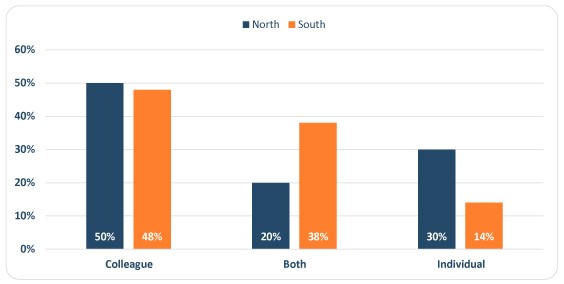
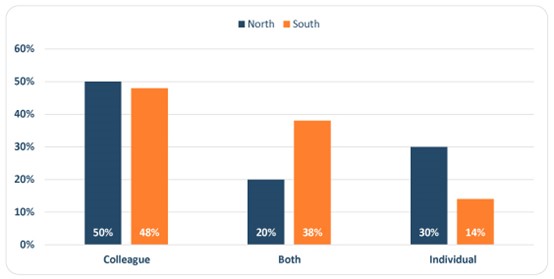
The results show that 30% of people in the North have personally experienced poor mental health while working from home, compared to 14% of those in the South.
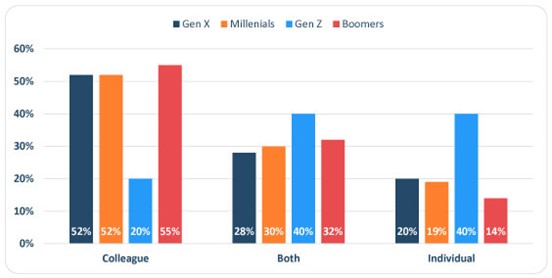
The results also showed 40% of those under 30 said working from home has negatively impacted their mental health.
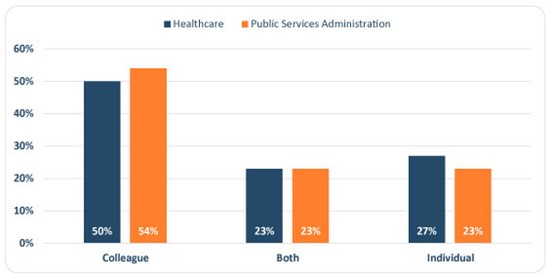
In Healthcare and Public Services Administration industries, we saw similar results across the board with many noting the negative effects of working from home on their colleagues mental health.
Our survey results clearly show that working from home may be a risk factor for poor mental health, with participants reporting direct effects in both themselves and colleagues.
With this in mind, organisations must make efforts to preserve the mental health of their employees; encouraging them to return to the workplace.
Working in collaborative environments not only helps prevent loneliness but also helps employers recognise the signs that an employee may be suffering from poor mental health.
Having regular check-ins in place means you know how each of your team members is doing. This is the perfect opportunity to ask questions, open the floor to feedback and see if there are any issues to be raised.
By opening the door to communication in this way, you can start to understand your teams better and keep an eye out for signs they might be struggling with loneliness or isolation. These conversations can also provide some social interaction for those who might not have much, and this can prevent loneliness in the first instance.
The mental health crisis in this country is not going away anytime soon.
With 75% of respondents to our survey believing that they have adequate support in place to support the mental health of their employees, it appears that some organisations could simply be treating mental health as a tick-box exercise.
From the above results, it become apparent that offering early, meaningful support in the workplace could help address service gaps, support the NHS, look after employees' wellbeing, and support those currently off on long-term sick leave.
Providing mental health support looks different for every organisation. But an Employee Assistance Programme (EAP) can be a great way to offer your teams access to the support they need to manage their mental health, without having to pay privately or sign up to a long waiting list.
With mental health support at their fingertips, employees have somewhere to turn to when life’s inevitable challenges come their way. When you support your people in this way you make them feel valued, you increase loyalty, and you allow them to show up as their best selves at work.
While many wellbeing providers offer a standard approach, we partner with our clients to offer a unique, personalised approach. We champion clinical intervention and provide health and wellbeing support with excellence, speed and quality.
To learn more about our award-winning services click here or contact us on: 0800 206 2445
Please complete the form below and we'll be in touch to answer your enquiry
Please complete the form and we'll be in touch to schedule your free consultation
We appologise but an error has occurred submitting your form. Please try again.